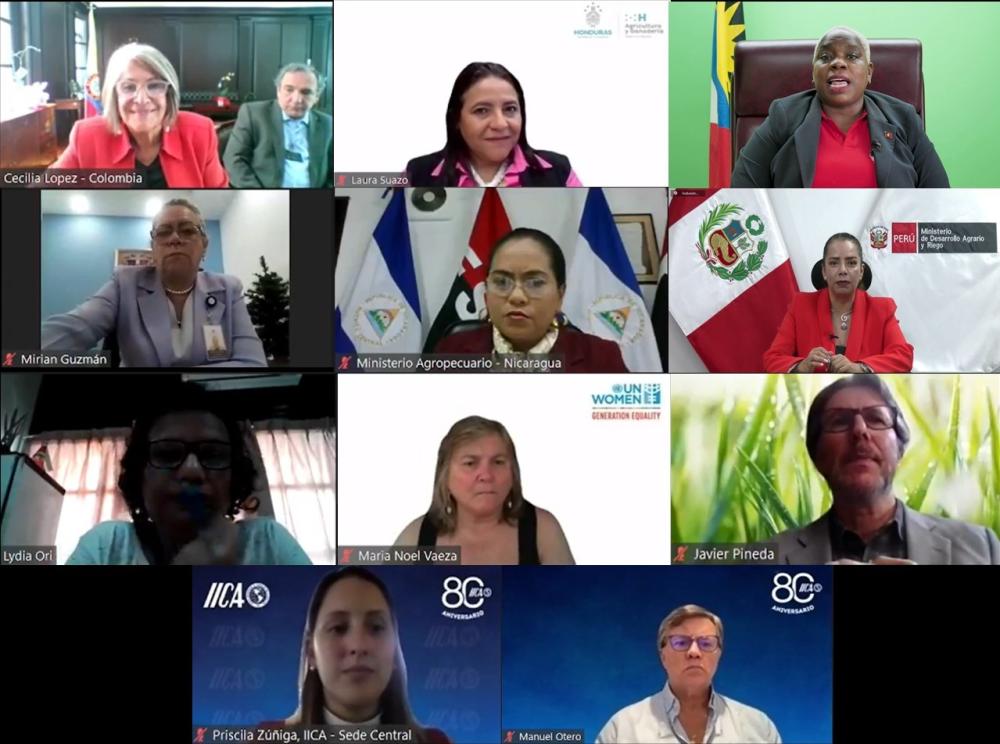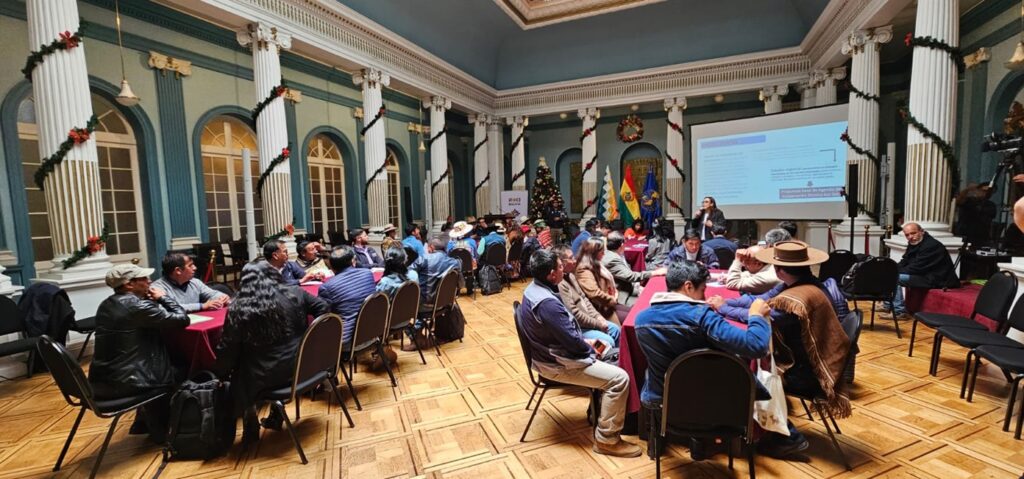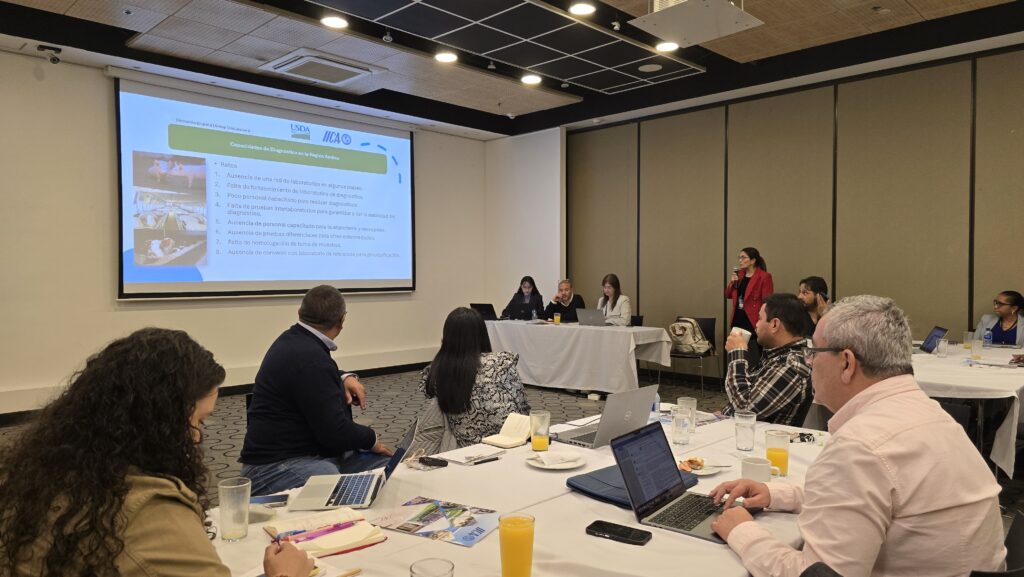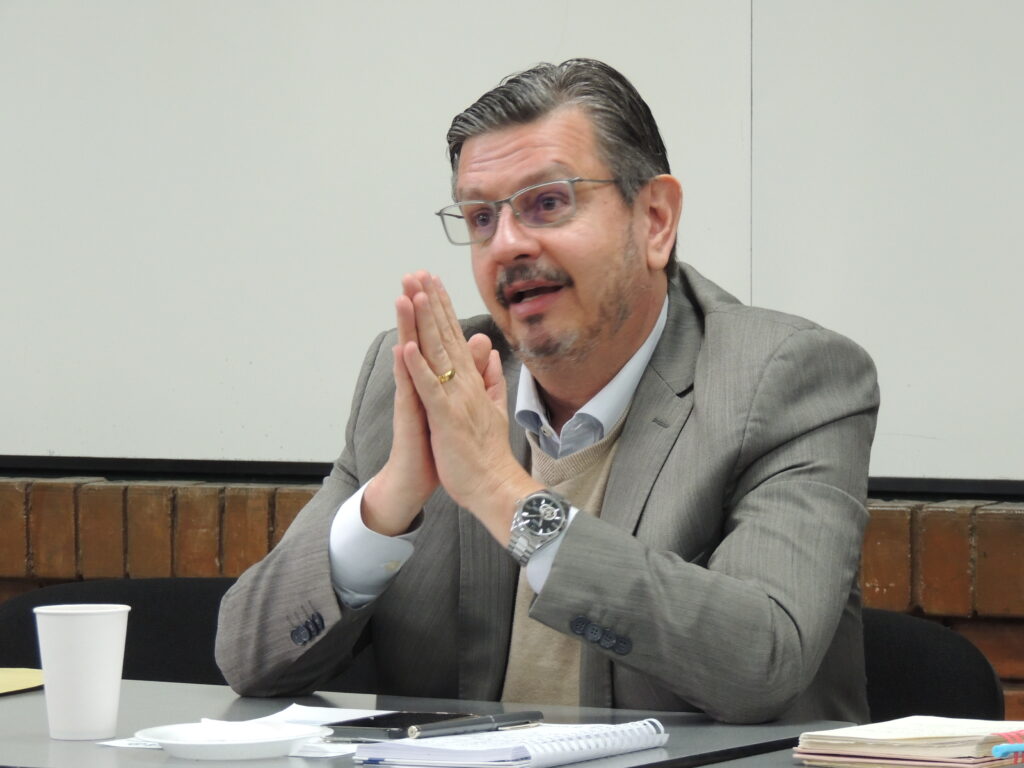A pesar de su rol crucial en la producción de alimentos y en la vida comunitaria, las mujeres reciben menos ingresos que los hombres, enfrentan mayores obstáculos para acceder a la propiedad de la tierra y también para obtener financiamiento.

San José, 25 de noviembre de 2022 (IICA) – Sólo el reconocimiento del trabajo no remunerado que las mujeres rurales realizan cotidianamente y su acceso pleno a los recursos productivos garantizará la seguridad alimentaria y mayores oportunidades de desarrollo para las comunidades en el campo.
Así lo advirtieron las ministras y viceministras de Agricultura de las Américas que participaron en el III Foro convocado por el Instituto Interamericano de Cooperación para la Agricultura (IICA). La finalidad fue debatir las prioridades de la región en cuanto a las políticas con enfoque de género en los sistemas agroalimentarios.
El Foro de ministras y viceministras de Agricultura de las Américas es una instancia que tiene la misión de perfeccionar políticas públicas y visibilizar el lugar protagónico que las mujeres cumplen en el desarrollo rural, favoreciendo el reconocimiento pleno de sus derechos.
A pesar de su rol crucial en la producción de alimentos y en la vida comunitaria, las mujeres reciben menos ingresos que los hombres, enfrentan mayores obstáculos para acceder a la propiedad de la tierra y también para obtener financiamiento.
El Foro, que se realizó de manera virtual, fue abierto por Cecilia López Montaño, Ministra de Agricultura y Desarrollo Rural de Colombia, quien ofició como anfitriona, junto al Director General del IICA, Manuel Otero.
Participaron Laura Suazo, Secretaria de Estado en los Despachos de Agricultura y Ganadería de Honduras; Samantha Marshall, Ministra de Agricultura, Pesca y Asuntos de Antigua y Barbuda; Miriam Guzmán, Viceministra de Desarrollo Rural de República Dominicana; Ivania del Carmen León, Viceministra Agropecuaria de Nicaragua; Jenny Ocampo, Ministra de Desarrollo Agrario y Riego del Perú y Lydia Ori, experta en políticas agrícolas de la Universidad Anton de Kom, de Surinam.
Además, María Noel Vaeza, Directora Regional para las Américas y el Caribe de ONU Mujeres, y Javier Pineda, Profesor asociado de la Universidad de los Andes de Colombia, expusieron sobre el papel de la llamada economía del cuidado para el desarrollo rural de las Américas.
En la oportunidad también se presentó el Curso Formación Mujeres Rurales, que el IICA diseñó y pondrá en marcha en enero de 2023, para dar respuesta a un pedido realizado por las ministras y viceministras durante el II Foro.
Se trata de una herramienta pensada para dotar a las mujeres rurales de instrumentos prácticos para fortalecer su liderazgo y contribuir al mejoramiento de sus capacidades como emprendedoras del ámbito rural.
Lo presentaron Priscila Zúñiga, Gerenta del Programa Equidad de Género y Juventudes, y Silvia Castellano, Especialista Técnica del IICA.
Patricia Vildósola, directora del suplemento Campo del diario El Mercurio, de Chile, fue la moderadora de la actividad.
Reconocer el valor del cuidado
La ministra colombiana, López Montaño, sostuvo que el tema crucial que impide el acceso pleno a sus derechos de las mujeres rurales es el no reconocimiento de la llamada economía del cuidado, que se refiere al tiempo que se ocupa para la atención de la familia y a las labores domésticas.
“La pandemia de Covid-19 destruyó mucho de los avances que las mujeres habíamos hecho a través de décadas y expuso que hemos fallado. Quedó claro que la brecha real entre hombres y mujeres nace de la diferencia que existe entre ellos en el uso del tiempo. En pleno siglo XXI todavía vemos a las mujeres como las cuidadoras”, advirtió.
“El meollo del problema es seguir pensando que el cuidado es una responsabilidad de la mujer. En América Latina, en 2021, el aporte económico del trabajo no remunerado ha sido de entre el 16 y el 27% del Producto Interno Bruto. Las mujeres dedican casi el 20% de su tiempo al trabajo doméstico y no remunerado. Si a las mujeres solo se les reconoce como actividad aquello que hacen fuera del hogar, no hay futuro”, advirtió.
Laura Suazo, además de secretaria de Honduras presidenta del Comité Ejecutivo del IICA, una de las instancias de gobierno del Instituto, subrayó que, desde que las mujeres tomaron un rol protagónico en la agricultura, los tomadores de decisiones se preguntaron cómo manejarían la crianza de los hijos al mismo tiempo.
“Nos hemos preparado y hemos sabido manejar el tema familiar, pero incluso así no tenemos generalmente oportunidades de ocupar puestos de alto nivel. En Honduras tuvo que venir la primera mujer presidenta para que le confiara a otra mujer el manejo del sector alimentario. Son mujeres creando oportunidades para otras mujeres”, afirmó.
Samantha Marshall señaló que las mujeres rurales están en desventaja para acceder a financiamiento para mejorar sus negocios e incluso puntualizó que muchas no tienen el apoyo de sus propias familias.
“En Antigua y Barbuda estamos alentando a más mujeres a que vayan a agricultura de más escala, a pesar de las dificultades que plantean en el Caribe los huracanes y las inundaciones, que son más frecuentes por el cambio climático”, dijo Marshall, quien señaló el valor del trabajo de cooperación del IICA para fortalecer a los pequeños agricultores caribeños.
La ministra peruana, Jenny Ocampo, dijo que el hambre, el cambio climático y la pandemia han generado en el mundo escenarios de constante crisis. “Esto -afirmó- nos obliga a mirar con más detenimiento a nuestro territorio y a las mujeres rurales. Se ha puesto en evidencia la necesidad de asegurar la alimentación y la agricultura familiar es clave”.
Ocampo se refirió a la poca participación de las mujeres rurales en la toma de decisiones en Perú y dijo que solo presiden el 18% de los consejos de recursos hídricos de cuencas y manejan apenas el 30% de la superficie de las parcelas productivas más grandes.
León, ministra nicaragüense, habló de la importancia del cooperativismo y la asociatividad para achicar las brechas de género en la agricultura familiar. Se refirió también al trabajo de su ministerio a favor de un mejor acceso a los mercados de comercialización por parte de las mujeres rurales.
La viceministra dominicana, Miriam Guzmán, puso el acento en que, si el trabajo no remunerado de las mujeres rurales tuviera participación en el Producto Interno Bruto de los países, sería visibilizada su verdadera importancia. “El temor a nivel mundial a una escasez de alimentos es una gran oportunidad para poner nuestros temas al tope de la agenda”, afirmó.
Cambiar la perspectiva
A su turno, María Noel Vaeza, en nombre de ONU Mujeres, sostuvo que es necesaria una nueva generación de políticas públicas agrícolas que incorpore a las mujeres.
“Ojalá que esta camada de ministras, que es nueva en las Américas, cambie la perspectiva y contribuya a reconocer la carga desproporcionada que recae en las mujeres. Es fundamental reconocer el liderazgo y los aportes de las mujeres rurales y la importancia de que participen en la toma de decisiones. Necesitamos que se entienda que el trabajo no remunerado es un trabajo y también que se reconozca que los saberes de las mujeres de los pueblos originarios son fundamentales”, dijo.
El profesor Javier Pineda hizo un repaso de políticas públicas en el continente que han ayudado a mejorar la participación de las mujeres
El compromiso del IICA con la transformación de los sistemas agroalimentarios basada en una participación real de las mujeres y la erradicación de prácticas machistas históricas fue expresado por Manuel Otero.
“Las mujeres producen la mitad de los alimentos en el mundo y, en el caso de los países en desarrollo, entre el 70 y el 80%. A pesar de eso poseen sólo el 15% de la tierra y reciben apenas el 10% de los ingresos”, señaló.
“Si las mujeres rurales tuvieran el mismo acceso que los hombres a los recursos, aumentaría la productividad. Es evidente que la incorporación de la mujer generaría la transformación de los sistemas alimentarios”, agregó.
Otero dijo que solo el 15% de los ministerios de Agricultura son ocupados por mujeres en la región y anunció que el IICA se propone incidir ante órganos internacionales de financiamiento para que formulen políticas públicas que discriminen positivamente a favor de las mujeres.
“En la reunión ministerial del año que viene este tema va a estar al tope de la agenda. Basta de diagnósticos. Es tiempo de que pasemos a la acción”, indicó Otero.
En el cierre, el director de Cooperación Técnica del IICA, Federico Villarreal, resumió los puntos abordados en el Foro y destacó la necesidad de sistematizar “el concepto de sociedad del cuidado” incorporando sus dimensiones productivas, ambientales y sociales, y de que los varones intervengan en las transformaciones que sirvan para catalizar el empoderamiento de las mujeres.
Más información:
Gerencia de Comunicación Institucional
comunicacion.institucional@iica.int










